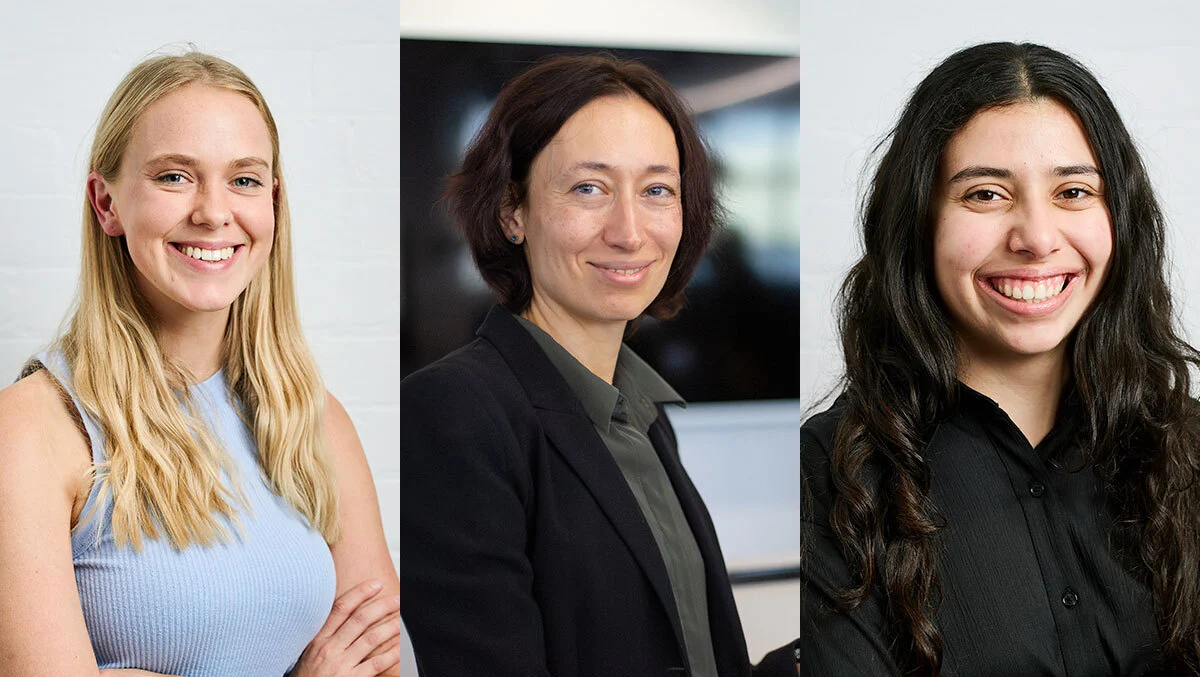
IWD 2024: Why the future is bright for women software engineers
Historically, substantially more men than women have studied and worked in software engineering. Even today, only 23% of students completing university degrees in information technology in Australia are women (STEM Equity Monitor). But we are on the cusp of a new era of change!
Three women at different stages of their software engineering careers at WiseTech Global reveal why now is a great time for women to become software developers and share their tips for success.
Rianna Libdy, associate software engineer – Find an internship:
I'm in the second year of a four-year Earn & Learn program for year 12 school leavers that combines studying for a degree in computer science with applying skills in a real-world workplace. When I started a year ago, I wasn't sure what to expect. Was tech a good career choice? Would I get bored?
I was also concerned that others would be smarter than me. I think girls seem to naturally fear disappointment. Yet most things aren't as scary as they seem.
A year later, my confidence in this career choice has boomed! It's not just the technical skills gained working alongside senior engineers. The biggest learning is the soft skills: being encouraged to ask questions, seek help, collaborate and eventually help others.
Now I'm a tutor for the new batch of Earn & Learn students who started this year. Initially, the boys and girls gravitated to separate groups. But after being mixed in their work teams they quickly got used to working together and the initial barriers fell. You can see they learn from each other – the boys bring confidence in expressing their ideas, and the girls bring skills for communication and collaboration. This applies to the team leads too. Together, a mix of genders makes a stronger and more balanced team of developers overall.
While there still aren't many girls in my degree at uni, this on-the-job experience has given me confidence in the future that is open to me. My tip for success to other girls considering a career in tech is to look for an internship as it will motivate you to learn to code and help you value and develop the different skills that girls bring to the workplace.
Holly Craig, software engineer – Dismiss the myths:
Tech is an awesome career if you enjoy a fast-paced environment, challenging yourself, creating things and problem-solving.
I've always leaned toward maths and science, but didn't get into coding until I was at uni. I hadn't learned coding in high school, and I didn't know anyone who coded. The assumption is that if you don't learn to code at school you won't be able to study it at university, so don't try to be a software engineer. But that's not true! I had started a science degree in neuroscience, picked up an elective in coding and loved it, and then changed to a double degree in computer science.
I've only been working for 2.5 years, so I haven't yet seen a massive change in the number of women entering software engineering. But it's great to see there are more opportunities for school students to be exposed to coding, such as via Grok Academy, Girls Programming Network and Earn & Learn, which will hopefully encourage more girls to consider this career.
Even so, it is confronting to sit in a lecture theatre with very few other girls. It's easy for imposter syndrome to sneak in. But there's no academic difference in the ability of men and women to be software engineers. My advice is to recognize these myths and dismiss them. And believe in yourself.
Let's face it – end users are made of all genders, so it makes sense that the coders who develop technology for them should be just as diverse.
Svetlana (Lana) Lazareva, senior software engineer – Talk to a mentor:
After more than 17 years as a software engineer, I see huge potential for women in this career. Traditionally, more men than women have chosen this career, but I really feel that we are at the beginning of a new era.
What's more, it's not about 'fitting in' – we should recognize and celebrate our differences. Men and women can think differently – and this is powerful. We bring a fresh perspective to tackling a problem and offer a different approach. Of course, this applies equally to other types of diversity too: age, culture, personal experience and so on. The difference is good! But when you consider that most software to date has been created by men, there's massive scope for women to come up with completely new products.
Today, I believe you have to seize the opportunity. Be prepared to try something different and more doors will be open to you. Soon, I will move into our data science team. But I had help to get to this point. A few years ago, I was a working mum with a young child and felt stuck in my routine. A friend suggested I talk to a mentor to 'do something about my life'. The mentor helped me find ways to save time, prioritize and keep learning. Key to this was accepting that every step matters, no matter how small, and you will eventually get a result. This is an important realization for everyone, but I think it particularly applies to women as often we are balancing many roles outside of work.
My advice is to search for role models, disregarding gender, age or nationality. And recognize that even if you're not a formal mentor, you are a role model for others – not just at work, but also for your children, nephews and nieces.